Thanks to the shift to raising "clean" capons, fed only corn, the meat quality is delicious, and the chickens are bought as soon as they are raised at high prices. Mr. Ta Dinh Chi (Trang Dai hamlet, Tan Kim commune, Phu Binh district, Thai Nguyen province) has in hand more than a hundred million VND with only 500 capons.
Previously, Mr. Chi mainly worked as a hired hand with many different jobs. But later, he found the work hard, unstable and the income was not high, so in 2004, he decided to return home to raise livestock.
At first, Mr. Chi raised pigs, but due to the constant epidemic, he gave up and switched to raising ducks and chickens. Later, with the support of his friends and relatives, he gradually expanded his chicken farming to a larger scale. Starting in 2009, Mr. Chi invested in barns and raised chickens in large numbers from then until now.
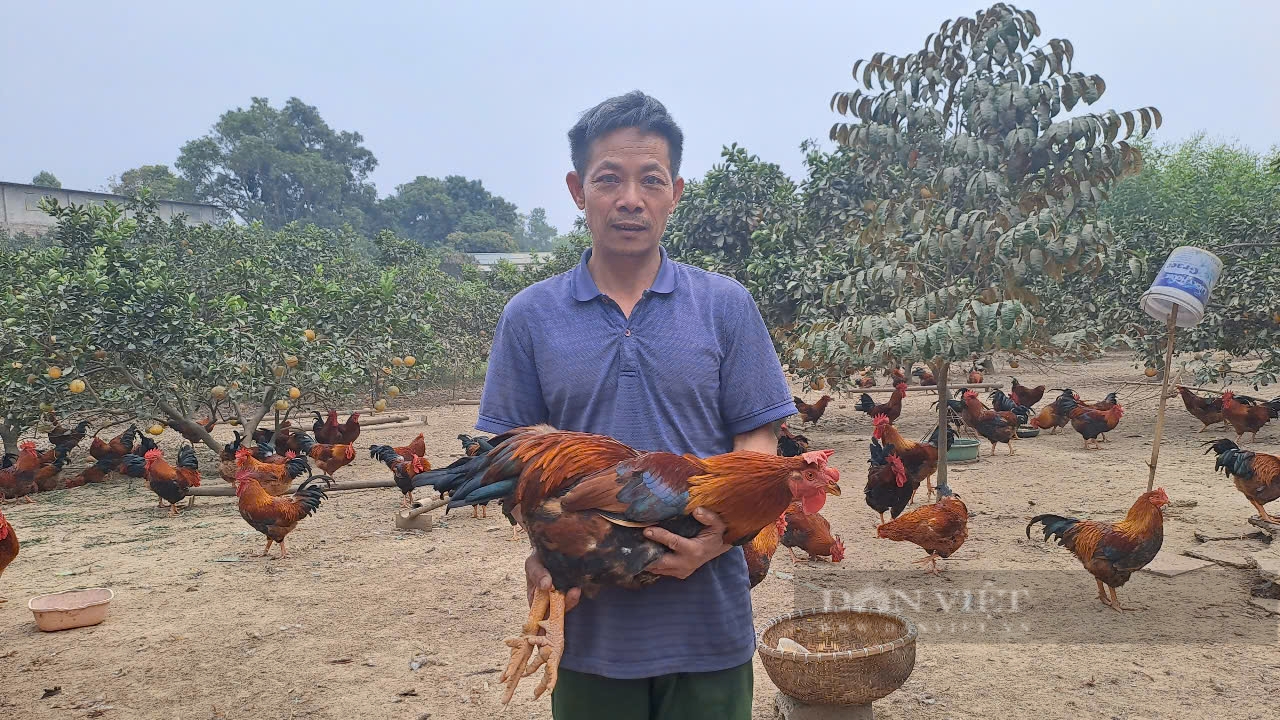
Mr. Ta Dinh Chi (Trang Dai hamlet, Tan Kim commune, Phu Binh district, Thai Nguyen province) started raising castrated roosters in 2024 with more than 1,000 chickens. Photo: Ha Thanh
This year, seeing that the price of broiler chickens was low and the price of animal feed was high, Mr. Chi decided to pilot raising more than 500 capon chickens to increase his income.
"For capons, during the basic raising process, they must be fully vaccinated. In addition, every week I spray probiotics to disinfect and deodorize the breeding area to ensure that the chickens are disease-free and do not pollute the environment.
I raise capons entirely on corn, so the meat is delicious and very popular with customers. I recently sold 200 chickens for 120,000 VND/kg, earning 68 million VND," said Mr. Chi.
According to Mr. Chi, the reason he decided to raise capon chickens was because he did not worry about losing money like normal meat chickens. Moreover, he wanted to bring to the market clean, quality products with clear origins to serve the needs of consumers in order to regain the brand of Phu Binh hill chicken products.
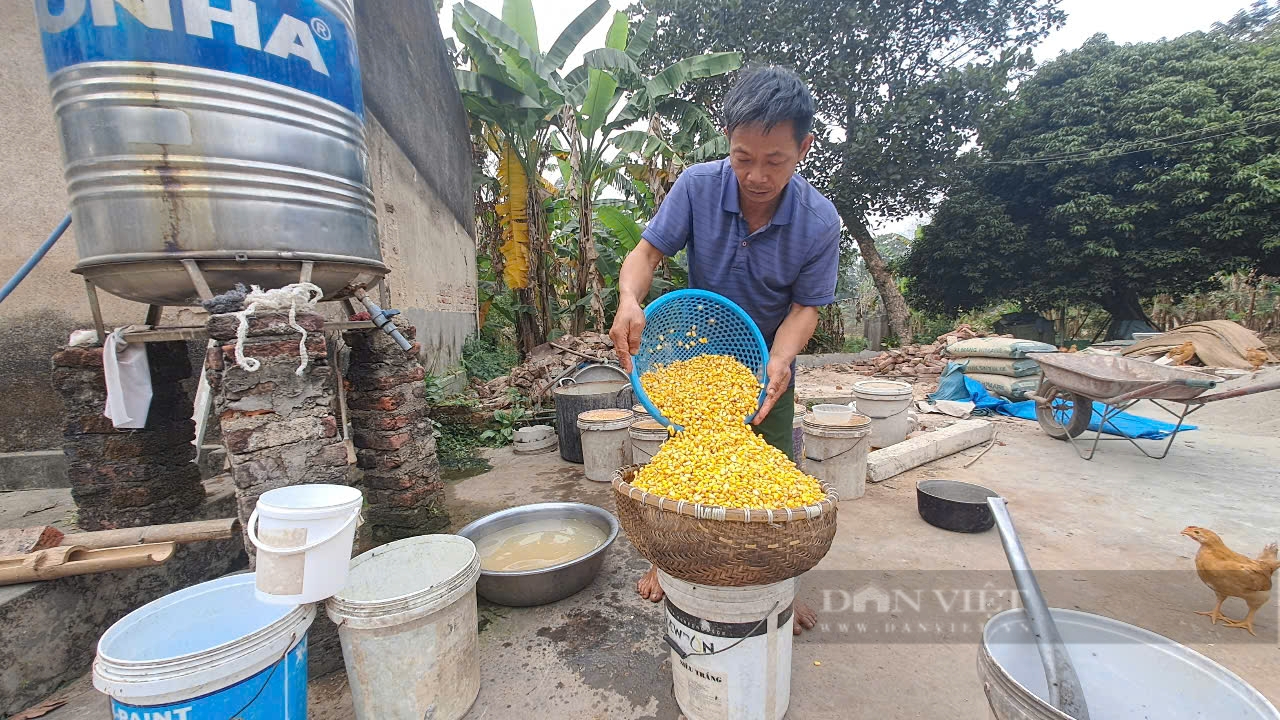
He completely switched the castrated roosters to corn from the 4th month onwards until they were sold. Photo: Ha Thanh
Normally, Mr. Chi castrates chickens around April and May every year. After fully vaccinating them against asthma and enteritis for 45-60 days, he will start to castrate them to reduce the loss rate of chickens. After castration, he feeds the chickens with industrial feed until they are about 3.5 months old, then gradually stops feeding them with corn until they are sold at about 7 months or more.
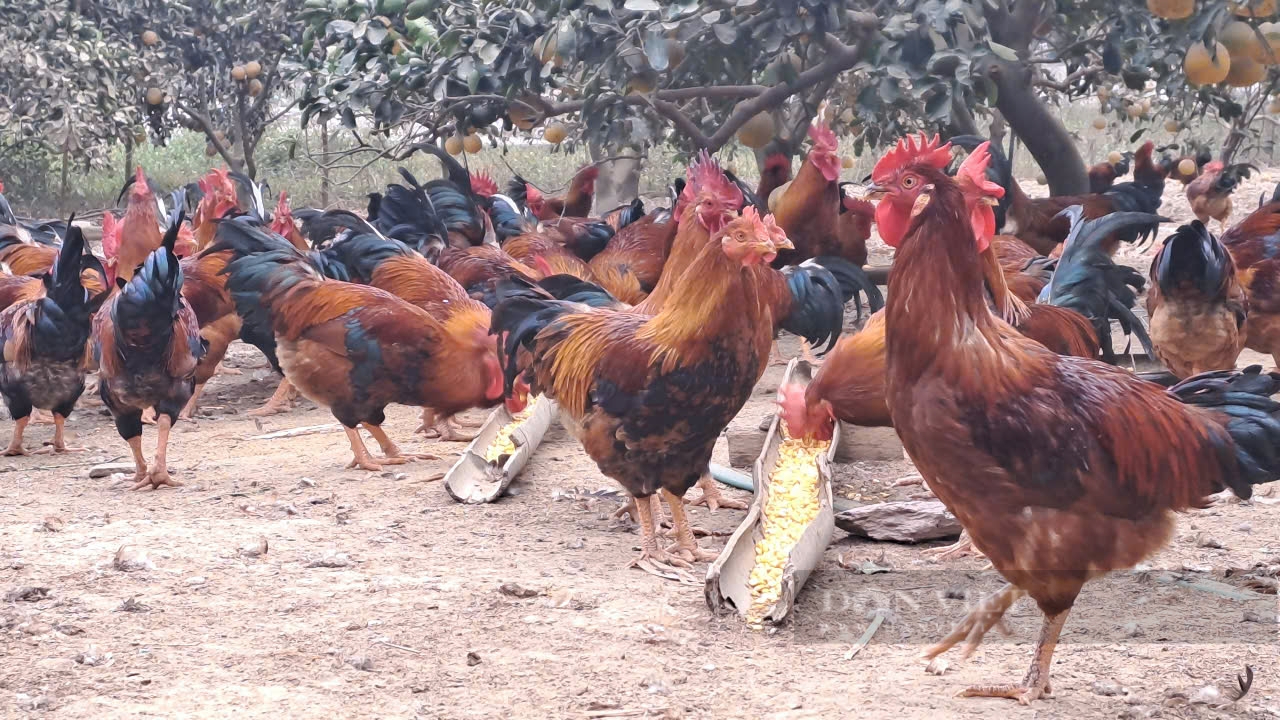
Capons raised on corn are beautiful, have delicious meat, and are sought after by many people. Photo: Ha Thanh
Sharing the secret to making chickens delicious and less prone to disease, Mr. Chi revealed: Before feeding the chickens corn, it must be soaked and washed for about 3 days and disinfected with lime water or salt to ensure safety.
On average, each capon will eat about 4 ounces of soaked corn per day (equivalent to 1.5 - 2 ounces of dry corn). Capons when left to graze will accumulate less fat, so the meat quality will be more delicious. At the time of sale, each chicken will reach an average weight of about 3.2 - 3.5 kg/chicken.
Along with the batch of capons that have been sold, Mr. Chi is currently raising a flock of about 1,000 capons for about 4 months to sell after Tet. According to Mr. Chi, raising capons compared to regular meat chickens is less risky, has lower costs and does not worry about losing money.
Realizing the effectiveness of the model, now some people in the neighborhood are also applying the capon raising model of Mr. Chi's family.
Mr. Chi plans to expand the scale and increase the number of castrated roosters raised in 2025 to increase his family's income.
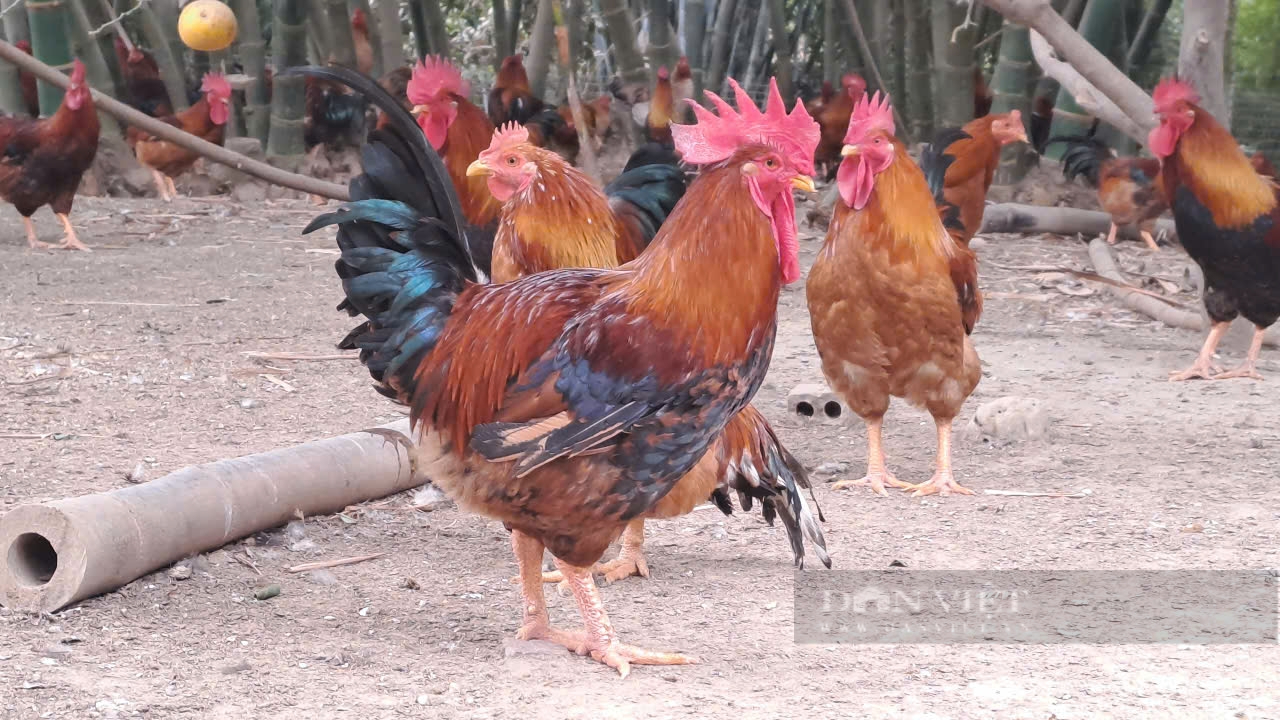
Each capon when sold has an average weight of 3.2 - 3.5 kg/bird. Photo: Ha Thanh
Source: https://danviet.vn/nuoi-ga-trong-thien-ban-tet-con-nao-cung-dep-ma-thit-thom-nong-dan-thai-nguyen-ban-hut-hang-20241228175141358.htm



![[Photo] Rescuing people in flooded areas at the foot of Prenn Pass overnight](https://vphoto.vietnam.vn/thumb/1200x675/vietnam/resource/IMAGE/2025/9/6/19095b01eb844de98c406cc135b2f96c)
![[Photo] Many people directly experience beloved Uncle Ho and the General Secretaries](https://vphoto.vietnam.vn/thumb/1200x675/vietnam/resource/IMAGE/2025/9/6/2f4d9a1c1ef14be3933dbef3cd5403f6)


![[Photo] General Secretary To Lam attends the 80th Anniversary of the General Staff of the Vietnam People's Army](https://vphoto.vietnam.vn/thumb/1200x675/vietnam/resource/IMAGE/2025/9/6/126697ab3e904fd68a2a510323659767)
![[Photo] 80th Anniversary of the General Staff of the Vietnam People's Army](https://vphoto.vietnam.vn/thumb/1200x675/vietnam/resource/IMAGE/2025/9/6/49153e2a2ffc43b7b5b5396399b0c471)
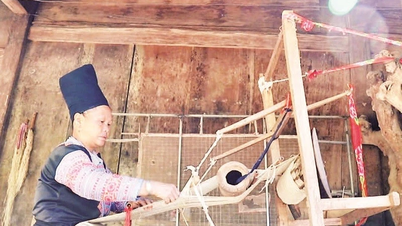

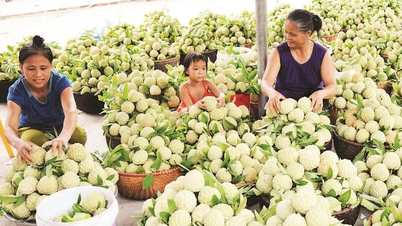
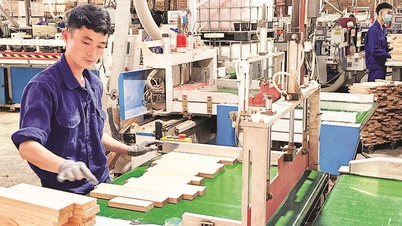
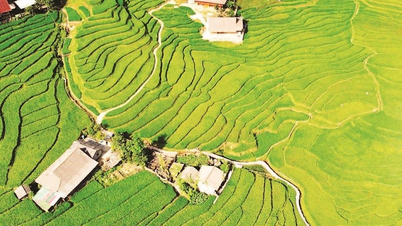

















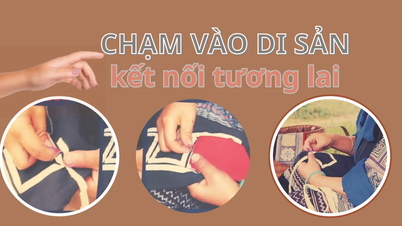




















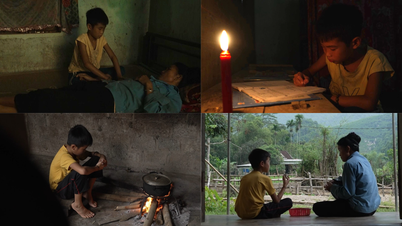

































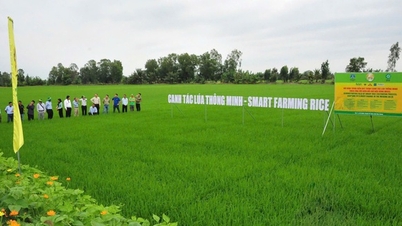
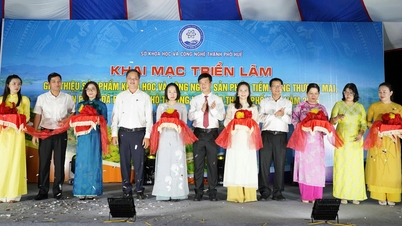


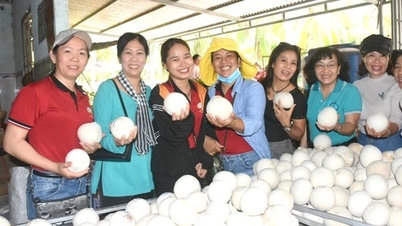






Comment (0)